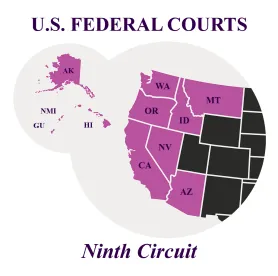A recent Ninth Circuit decision on a class action settlement, In re Apple Inc. Device Performance Litigation, 2022 WL 4492078 (9th Cir. Sept. 28, 2022), received significant attention in the legal media. It addressed several issues of significance to lawyers negotiating class settlements: (1) class representative incentive awards; (2) a requirement that class members attest to having experienced the harm at issue to obtain relief; (3) notice to class members that are legal entities; and (4) the legal standard for settlements negotiated prior to class certification. Here are my thoughts on the court’s treatment of each of these issues:
Incentive Awards: The Ninth Circuit approved incentive awards of $1,500 for named plaintiffs who were not deposed and $3,000 for those who were. It noted that it had previously rejected or criticized awards of $20,000 and $30,000. The Ninth Circuit reiterated its prior position that an incentive award should be consistent with the time and effort spent by the plaintiff, the benefit to the class and any risks taken by the plaintiff. But the award should not put the plaintiff in a “preferred position in the settlement.” The Ninth Circuit rejected the Eleventh Circuit’s view that two 19th century Supreme Court cases prohibit these awards (see my blog post on that), an issue that might reach the Supreme Court. While defendants often view these awards as immaterial from a financial perspective, ensuring smooth sailing of a settlement may warrant researching how they’ve been treated in the circuit before agreeing to a specific amount.
Attestation Requirement: The plaintiffs brought statutory and other claims based on allegations that Apple’s updated version of iPhone software slowed the phones’ performance without disclosing this at the time it released the updates. The settlement class was defined as all owners of certain iPhones at the relevant time, but cash payments were made available only to class members who attested under penalty of perjury that they experienced the diminished performance during the relevant timeframe. The Ninth Circuit found this appropriate because a class member who could not attest to this would have a “valueless claim.” The Ninth Circuit rejected an argument that class members who did not experience (or notice) the problem lacked standing because it concluded that allegations that all putative class members experienced the problem were sufficient where the case settled at the pleading stage.
Notice to Non-Individual Class Members: Some class members were businesses that bought iPhones for their employees. Apple told the district court it did not have contact information for corporate purchasers, so notice was given to all individuals who had registered iPhones through Apple, including individual employees of businesses. The Ninth Circuit found this sufficient.
Legal Standard for Settlements: The Ninth Circuit vacated and remanded the district court’s approval of the settlement because the district court’s order, while thorough, stated that it had presumed that the settlement was fair and reasonable. This was contrary to Ninth Circuit precedent that such a presumption must not be applied for settlements reached prior to class certification. There isn’t much that practitioners can do to avoid this except make sure that any proposed order submitted to the trial court recites the latest legal standards in the circuit. Perhaps you could request correction of an order after it is issued if it does not recite the correct standard and an objector is likely to appeal.



 />i
/>i

